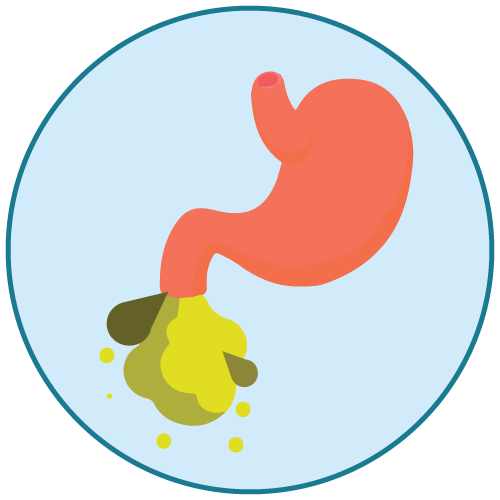| Name | Flattus with discharge |

Flattus with discharge
Flatulence with discharge refers to passing gas accompanied by releasing liquid or solid material from the rectum. This condition can be embarrassing and uncomfortable for individuals experiencing it. Here's some information on the possible causes, signs and symptoms, and potential treatments for flatulence with discharge:
Causes:
- Diarrhea: When there is excessive stool in the rectum, it can result in the involuntary release of stool along with the passing of gas.
- Bowel incontinence: Weakened or damaged muscles that control bowel movements can lead to the accidental passage of gas along with stool.
- Inflammatory Bowel Disease (IBD): Conditions like Crohn's disease or Ulcerative colitis can cause chronic inflammation in the gastrointestinal tract, leading to diarrhea and flatulence with discharge.
- Infection: Gastrointestinal infections can cause diarrhea and loose stools, which may accompany flatulence with discharge.
- Food intolerances or malabsorption: Certain food intolerances or malabsorption issues, such as lactose intolerance or celiac disease, can lead to loose stools and flatulence with discharge.
- Medications: Some medications, such as antibiotics or laxatives, can cause changes in bowel habits and contribute to flatulence with discharge.
Signs and Symptoms:
- Passing gas accompanied by the involuntary release of liquid or solid material from the rectum.
- Loose stools or diarrhea.
- Abdominal discomfort or cramping.
- Feeling of urgency or inability to control bowel movements.
- Increased frequency of bowel movements.
Treatment:
The treatment of flatulence with discharge will depend on the underlying cause. Here are some general approaches:
- Dietary changes: Modifying your diet can help manage symptoms. This may involve avoiding trigger foods or substances that worsen symptoms, such as certain types of carbohydrates or caffeine.
- Medications: In some cases, medications such as antidiarrheal drugs or medications targeting specific gastrointestinal issues may be prescribed to address the underlying condition.
- Pelvic floor exercises: Strengthening the pelvic floor muscles through exercises or physical therapy can help improve bowel control.
- Treatment of underlying conditions: If flatulence with discharge is caused by an underlying medical condition like IBD or an infection, treatment will focus on managing that specific condition.
- Lifestyle modifications: Maintaining a healthy lifestyle, managing stress, and staying physically active can help regulate bowel movements.
It is important to consult a healthcare professional for an accurate diagnosis and personalised treatment plan based on your specific situation. They can perform a thorough evaluation, including medical history, physical examination, and possibly further diagnostic tests, to determine the underlying cause and provide appropriate treatment recommendations.
 Bangla
Bangla English
English